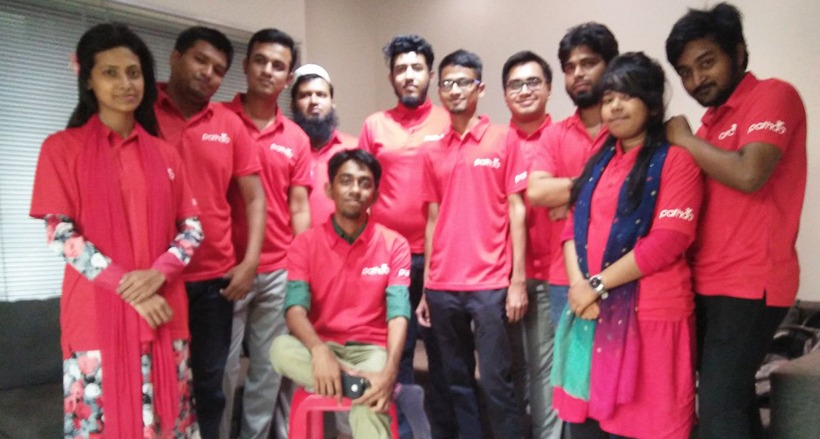
Indonesian ride-hailing unicorn Go-Jek has reportedly co-invested “around US$2 million” in Pathao, Dhaka-based fast growing logistics + ride-hailing startup, as part of its Series A funding, reports DealstreetAsia citing sources “aware of the matter”. We could not independently verify the report.
The deal was closed “a few weeks back” and that Go-Jek has taken up a minority stake in Pathao, says the report. Go-Jek investing in Pathao makes sense given that both companies share many similarities in their business model and Go-Jek has been on an acquisition spree for a while now. However, this will be Go-Jek’s first investment in the region.
Founded in 2015 by Hussain Elius, Shifat Adnan, and Fahim Saleh, the company started out as a consumer-facing on-demand delivery business as part of a venture experiment from now-defunct business building platform HackHouse.
It later pivoted to e-commerce delivery where it quickly found a business and became a leading player within a short period of time. “On-demand delivery was a challenging space to operate because of poor market demand and huge resource requirement, so we shifted our focus to ecommerce in last October 2015,” told Hussain M. Elius to Future Startup in a 2016 interview. Today, Pathao logistics is one of the biggest players in eCommerce delivery in Bangladesh.
In 2016, it made its foray into ride-hailing transportation space with Pathao Rides and a fleet of 200 motorbikes. The idea was to use the same fleet to carry passengers in the peak-office hours and maintain eCommerce delivery during the off-peak hours.
The company now claims to serve ‘thousands of’ daily rides and continues to receive rave reviews from its users despite its recent legal hiccups.
Previously, Pathao raised an undisclosed amount from Battery Road Digital Holdings, Skycatcher and a pool of undisclosed investors in its seed round in December 2016.
Mobility is a big problem in Dhaka, as we wrote in a recent report. It is hard to get from one place to another in the city without spending hours on the road and the public transportation system is showing little sign of improvement.
Traffic has gotten worse over the years. According to World Bank, average traffic speed in Dhaka has dropped from 21 km/hour to 7 km/hour over the last 10 years.
According to “the Government’s own estimate, Dhaka’s traffic jams eat up 3.2 million working hours each day and drain billions of dollars from the city’s economy annually”.
Hence, we are seeing an influx in the number of mobility and on-demand transportation services in Dhaka. Dhaka has over 9 startups operating in the space including Toma, Chalo, Sam, Oikhali, Pathao, Uber, Amarbike, Amar Ride and Muv (you may see our mobility market map here).
It seems that the market is going to be even more competitive in the coming years. International players like India’s Ola and Grab are now eyeing Bangladesh. As we reported earlier, Ola is planning to launch operations in Dhaka by the fourth quarter of this year.
Investors across the world have been pouring billions of dollars into ride-hailing and transportation companies across the world.
This year alone, we have seen Didi Chuxing of China raise $5.5 billion to fuel its global expansion and Indonesia’s Go-Jek a $1.2 billion to fight Uber and Grab.
Mobility has become one of most talked about industries. With the emergence of electric vehicles led by Tesla, and self-driving car led by Google, Uber, Tesla, Lift Didi and in fact Apple, the future of transportation is a real hot topic.
Car manufacturers including GM are also investing heavily in the space.
Asia has seen some of biggest mobility startups including Grab, GO-Jek, Ola, Didi, Easy Taxi (southeast Asia), Meru Cab, Jagnoo, Shuttl, Careem (Middle East) and a host of other smaller players.
(Note: This is a developing story and will be updated)
